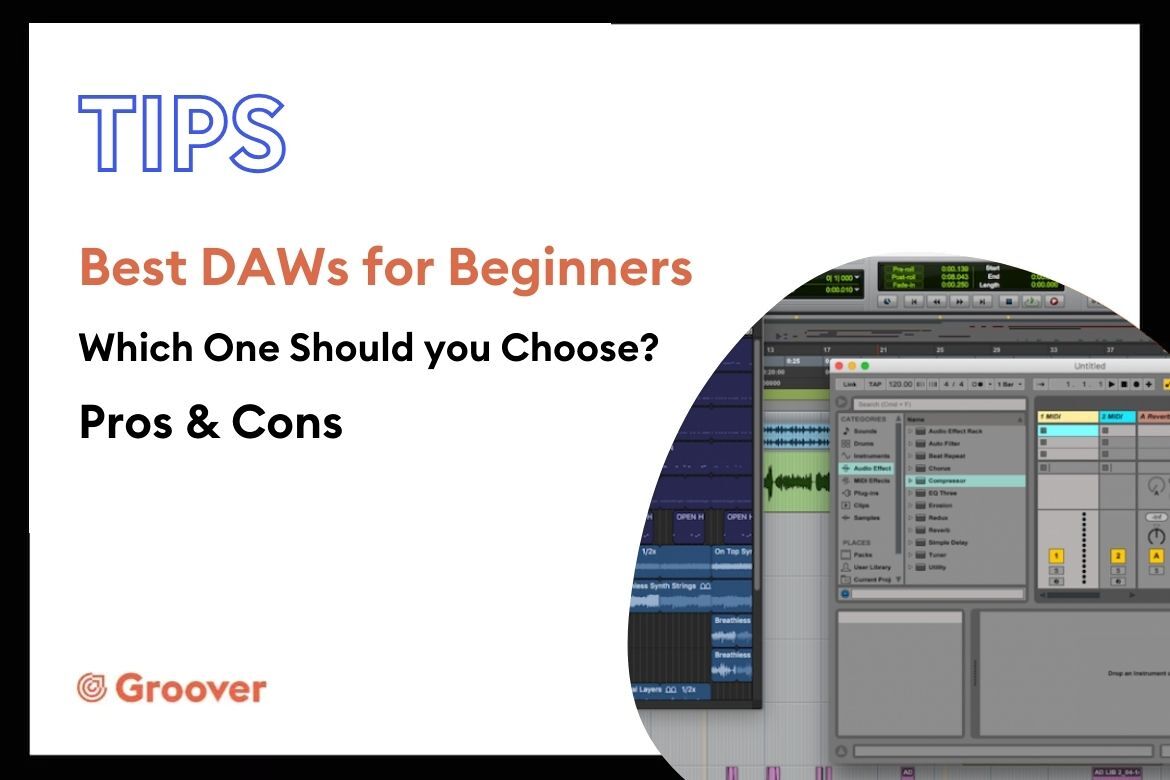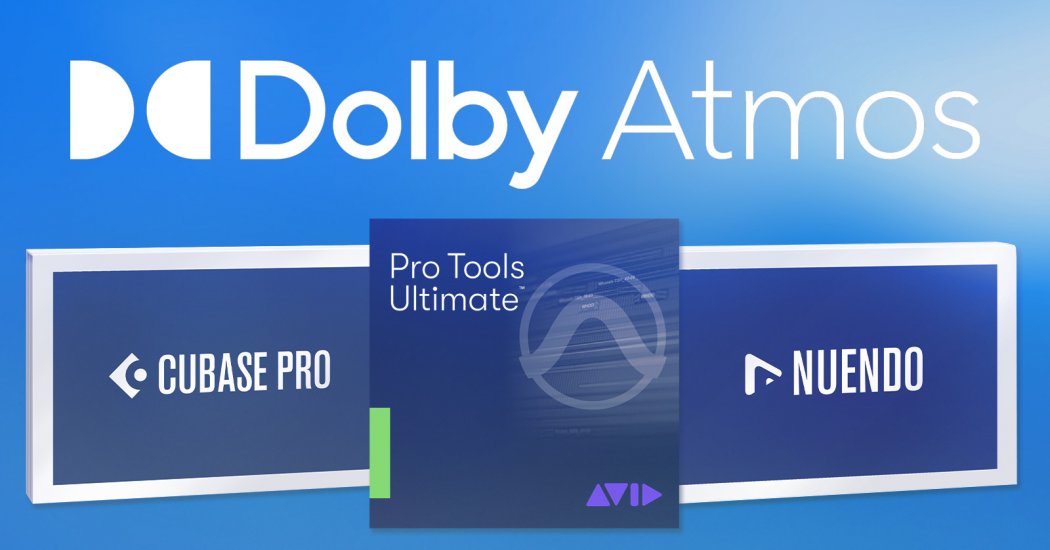In the music production world, Pro Tools is preferred for its industry-standard reputation over Cubase. When it comes to choosing between Cubase and Pro Tools for music production, users often face a common dilemma.
Both software tools have their strengths and weaknesses. Understanding the key differences between Cubase and Pro Tools can help you determine which one is better suited to your specific needs. We will compare the features, functionality, and overall performance of Cubase and Pro Tools to help you make an informed decision.
Whether you are a music producer, composer, or audio engineer, selecting the right digital audio workstation (DAW) is crucial for unleashing your creativity and maximizing your productivity.
Comparing Cubase And Pro Tools
Cubase and Pro Tools are two popular digital audio workstations used by professionals in the music industry. Let’s explore their differences in User Interface, Audio Recording and Editing, and MIDI Capabilities.
User Interface
- Cubase: Offers a sleek and intuitive interface with customizable features.
- Pro Tools: Known for its classic layout and functionality, preferred by many industry professionals.
Audio Recording And Editing
- Cubase: Provides efficient audio recording and robust editing tools for detailed post-production work.
- Pro Tools: Renowned for its high-quality audio recording capabilities and precision editing features.
Midi Capabilities
- Cubase: Excels in MIDI capabilities, offering advanced tools for MIDI composition and manipulation.
- Pro Tools: While capable in MIDI functions, Pro Tools is more focused on audio recording and editing.
Workflow And Features
In comparing Cubase and Pro Tools, examining their workflow and features is crucial. Both DAWs offer a range of capabilities that cater to different user preferences.
Integration With Hardware
Cubase and Pro Tools seamlessly integrate with various hardware devices, enhancing the overall music production experience.
Plugin And Software Compatibility
Both DAWs offer extensive plugin and software compatibility, allowing users to expand their creative possibilities effortlessly.
Mixing And Mastering
When it comes to mixing and mastering, both Cubase and Pro Tools have their own set of strengths and weaknesses. Let’s explore how these DAWs compare in the realm of mixing and mastering.
Automation And Control Surfaces
Cubase: Provides robust automation features, including the ability to automate virtually any parameter within the software, offering extensive control over the mixing process.
Pro Tools: Known for its intuitive and customizable control surfaces, Pro Tools offers seamless integration with various hardware controllers, allowing for precise control over mixing and automation.
Signal Processing And Effects
Cubase: Boasts a wide array of built-in signal processing and effects plugins, enabling users to apply professional-quality processing directly within the software.
Pro Tools: Offers a comprehensive selection of industry-standard signal processing and effects plugins, providing users with a versatile toolkit for crafting polished and professional mixes.

Credit: www.amazon.com
Collaboration And Compatibility
When it comes to music production, finding the right software that caters to your needs is crucial. Two popular options in the industry are Cubase and Pro Tools. Both offer a wide range of features and capabilities, but today we will discuss the crucial aspect of collaboration and compatibility. How well do these software solutions work when it comes to file compatibility and transfer, as well as offering collaborative tools and options?
File Compatibility And Transfer
In terms of file compatibility and transfer, both Cubase and Pro Tools offer excellent support for various audio formats. Cubase allows you to import and export popular file types, such as WAV, AIFF, and MP3, making it easy to work with audio files from different sources.
On the other hand, Pro Tools also provides seamless integration with different file formats, allowing you to work with audio files recorded on other platforms. This compatibility ensures that you can easily collaborate with artists or producers who use different software.
Collaborative Tools And Options
Collaboration is essential in the world of music production, and both Cubase and Pro Tools offer a range of tools and options to facilitate this process.
- Cubase:
- Project sharing: Cubase allows you to share your projects with others, making it easy to collaborate on a single file. This feature ensures seamless teamwork and reduces the need for file transfers.
- Remote collaboration: With Cubase, you can collaborate with artists remotely by using a feature called VST Connect. This allows you to connect with other musicians and record their vocals or instrumentals directly into your project.
- Cloud integration: Cubase offers cloud-based storage integration, allowing you to store and share your project files securely. This feature simplifies the process of collaborating with artists or producers located in different parts of the world.
- Pro Tools:
- Collaborative options: Pro Tools provides various collaborative options, such as Playlist collaboration and Avid Cloud Collaboration, which allow multiple users to work on the same project simultaneously.
- Session sharing: Pro Tools offers session sharing capabilities, enabling you to easily share sessions with other Pro Tools users. This allows for real-time collaboration, with multiple users making changes to the project in sync.
- Integration with Avid Link: Avid Link is a platform that connects artists, producers, and studios. Pro Tools integrates seamlessly with Avid Link, making it easy to collaborate and share project files within the industry.
In conclusion, both Cubase and Pro Tools provide excellent collaboration and compatibility features. Whether you prefer Cubase’s project sharing and remote collaboration capabilities or Pro Tools’ playlist collaboration and Avid Cloud Collaboration, both software options offer solid solutions for working collaboratively in the music production industry.
Cost And Accessibility
When comparing Cubase and Pro Tools, it’s essential to consider their cost and accessibility. Cubase offers a more affordable option with a range of features suitable for beginners and enthusiasts. On the other hand, Pro Tools provides more accessibility with its compatibility across various platforms and a well-established user base.
Pricing And Licensing
Let’s dive into the cost and accessibility of Cubase and Pro Tools, two popular digital audio workstations (DAWs) often used in the music production industry. One crucial factor to consider when choosing a DAW is the pricing and licensing options they offer. Cubase offers a range of pricing options to cater to different user needs. The most affordable version, Cubase Elements, provides essential features and functionalities at a budget-friendly price. For more advanced capabilities, you can upgrade to Cubase Artist or Cubase Pro, which offer a wider range of tools and plugins. Cubase also has different licensing options, including perpetual licenses and subscription-based models. This flexibility allows users to choose the most suitable licensing option based on their preferences and budget. On the other hand, Pro Tools offers several versions to cater to different user requirements. Pro Tools First is a free version that provides limited features but serves as a good starting point for beginners. Pro Tools Standard and Pro Tools Ultimate offer more advanced features, such as surround sound capabilities and extensive plugin support. Pro Tools also offers different licensing options, including perpetual licenses and subscription-based models, giving users the flexibility to choose the most convenient and cost-effective option.
System Requirements And Support
Aside from pricing and licensing, it’s crucial to consider the system requirements and support provided by Cubase and Pro Tools. Cubase has specific system requirements that users need to meet for optimal performance. These requirements typically include a minimum processor speed, RAM, and hard drive space. It’s essential to check your computer’s specifications and ensure they meet Cubase’s requirements to avoid any compatibility issues. Steinberg, the company behind Cubase, provides comprehensive support through online forums, tutorials, and dedicated technical support teams to assist users with any issues they may encounter. Pro Tools also has specific system requirements that users need to meet to ensure smooth operation. These requirements typically include a compatible operating system, processor speed, RAM, and hard drive space. It’s vital to check your computer’s specifications and ensure they meet Pro Tools’ requirements to avoid any compatibility problems during installation and usage. Avid, the company behind Pro Tools, provides support through their online knowledge base, forums, and customer support to help users troubleshoot and resolve any issues they may face. In conclusion, when considering the cost and accessibility of Cubase and Pro Tools, it’s crucial to analyze their pricing and licensing options, as well as their system requirements and support. By evaluating these aspects, you can make an informed decision based on your budget, needs, and the compatibility of the software with your existing hardware.

Credit: blog.groover.co

Credit: www.sweetwater.com
Frequently Asked Questions Of Which Is Better Cubase Or Pro Tools
What Is Better Cubase Or Pro Tools?
Both Cubase and Pro Tools are popular DAWs, but Cubase is better for MIDI editing and virtual instruments while Pro Tools excels in audio recording and editing. Ultimately, the choice depends on your specific needs and preferences.
Do Pros Use Cubase?
Yes, many professional musicians and producers use Cubase for its advanced features and high-quality audio production capabilities.
What Is Better Than Cubase?
A popular alternative to Cubase is Ableton Live, known for its intuitive interface and powerful features. It’s favored by electronic musicians and DJs for its live performance capabilities. Pro Tools is another industry standard choice, widely used in professional recording studios for its robust mixing and editing tools.
Is Pro Tools Still The Best Daw?
Yes, Pro Tools is still considered the best DAW (Digital Audio Workstation) due to its advanced features, professional-grade tools, and industry-standard reputation. Its intuitive interface and robust functionality make it a top choice in the music production and recording industry.
Conclusion
Both Cubase and Pro Tools offer a range of features for music production. Your choice should depend on your specific needs and preferences. Consider the interface, workflow, and compatibility with your hardware and software. Ultimately, the best DAW is the one that meets your requirements and enhances your creativity.